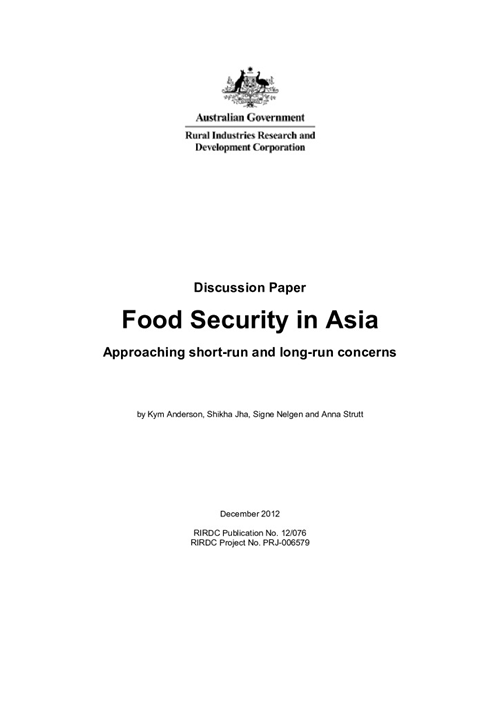In the wake of recent food price spikes, plus growing demands for food in emerging Asia and for biofuels in Europe and the United States, governments are re-examining their strategies for dealing with both short-term and long-term food security concerns. This paper argues that long-run trends in real agricultural prices have policy implications for food security that are at least as important as those related to short-lived spikes around trend prices.
The paper therefore summarises recent projections of markets to 2030 under various scenarios, and then reviews evidence on how trade policy restrictions typically are altered to insulate domestic markets from short-run fluctuations in international prices around their long-run trends. That provides a firm empirical basis for re-examining the effectiveness and efficiency of various policy options for ensuring food security in Asia and elsewhere. Those options include boosting agricultural productivity growth rates to deal with long-run concerns, and using more-appropriate domestic policy measures rather than trade policies to cope with price volatility.
Download only – no hardcopies available





